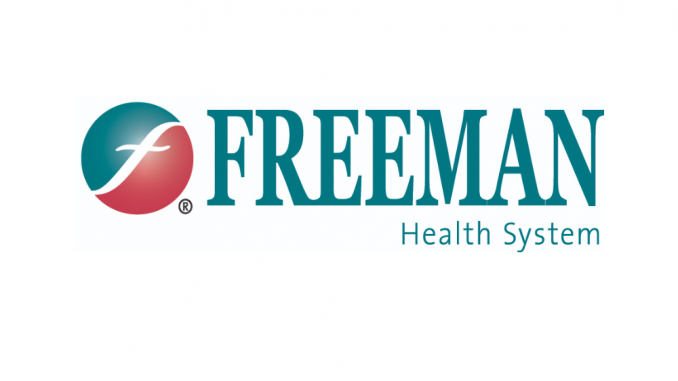
(Joplin, MO) – Kate Spencer, a 43-year-old mother of four, went into her kitchen Thanksgiving morning to prepare for a day of baking turkey, but as she started to drink her first cup of coffee, a terrible pain told her something was wrong.
“I felt this intense squeezing in my chest that I had never felt before,” said Spencer. “It was very uncomfortable. I took my husband in another room and as I told him about it, I started to feel burning up the back of my neck and into my right arm pit.”
She was having a heart attack. Her husband rushed her to the Freeman Health System Emergency Room where their fears were confirmed.
“Doctors gave me nitroglycerin to stop the pain and told me the EKG showed I had a severe heart attack,” said Spencer. “They told me I would need to see a cardiologist and go to the catheter lab in the hospital that day. It was surreal. I started crying. I wasn’t overweight. I eat healthy and have worked out with a trainer for years. I don’t smoke or do drugs and there was no family history.”
Freeman Interventional Cardiologist Dr. Frank Kim was on duty and asked Spencer a series of questions about her health. When she answered no to many of the common indicators of heart disease, he suspected she had a rare condition – spontaneous coronary artery dissection or SCAD.
“We’re still learning about SCAD which is very rare,” said Dr. Frank Kim, Freeman Interventional Cardiologist. “It can start as a small tear in the lining of the artery and then can spiral. The blood can accumulate between the layers of tissue in the lining to create a hematoma. Because the coronary arteries can be very fragile, we need to be selective with catheter choices and even with the dye injection rate and force to minimize potential harm during the cardiac catheterization.”
“I can’t rave about Dr. Kim enough,” said Spencer. “He was so knowledgeable of this very rare condition. Dr. Kim admitted me for three to five days to watch me because another heart attack was possible and could be really bad.”
Two days later as her husband brought their four children to visit, Spencer felt out of breath and a tightness in her chest like anxiety – the second heart attack hit.
“Both of us broke down with the kids watching,” said Spencer. “We were saying quick goodbyes as they took me back to the cath lab and I thought I’m gonna die and all I get is a picture with the kids in ICU, two seconds, and a kiss!”
Dr. Robert Stauffer was now on duty and in the cardiac ICU where they determined the artery had dissected completely. There is no surgery to repair SCAD. So, doctors treat the condition with medications to slow blood flow to the heart.
“Conservative care and observation is the most important part of treatment,” said Dr. Robert Stauffer, Freeman Interventional Cardiologist. “Stenting often leads to serious complications and further dissection. Most will heal by themselves.”
“They say it should heal on its own in five to six months but SCAD can happen again,” said Spencer. “I’m on a beta blocker, blood pressure and cholesterol medicines, even though I don’t have those problems, so that my blood doesn’t go as fast through my veins, and instead moving slowly to keep my heart happy and prevent another SCAD.”
SCAD can happen at any age, but according to the National Institutes of Health, it is more common in women ages 30 – 50 and can even occur in the first few weeks after giving birth or during pregnancy. Most cases occur in otherwise healthy people.
Despite the condition being extremely rare, Dr. Frank Kim had knowledge of SCAD, ensuring the quality of care that has earned Freeman multiple awards.
Freeman Health System received the 2021 Mission: Lifeline® NSTEMI Gold Quality Achievement Award and the 2021 Mission: Lifeline® STEMI Receiving Center Silver Plus Achievement Award from the American Heart Association.
Freeman is also one of only 212 hospitals nationwide to receive the American College of Cardiology NCDR Chest Pain – MI Registry Platinum Performance Achievement Award for 2020. To receive the Chest Pain ̶ MI Registry Platinum Performance Achievement Award, Freeman Health System has demonstrated sustained achievement in the Chest Pain ̶ MI Registry for two consecutive years (2019 and 2020), and performed at the highest level for specific performance measures. Full participation in the registry engages hospitals in a robust quality improvement process using data to drive improvements in adherence to guideline recommendations and overall quality of care provided to heart attack patients.
U.S. News & World Report also ranks Freeman as high-performing in heart failure care for 2020 – 2021.
People can take a heart risk assessment at freemanhealth.com/heart.
About Freeman Health System
Locally owned, not-for-profit and nationally recognized, Freeman Health System includes Freeman Hospital West, Freeman Hospital East, Freeman Neosho Hospital and Ozark Center – the area’s largest provider of behavioral health services – as well as two urgent care clinics, dozens of physician clinics and a variety of specialty services. In 2020, Freeman earned dozens of individual awards for medical excellence and patient safety from CareChex®, a quality rating system that helps consumers evaluate healthcare providers. U.S. News & World Report named Freeman Health System the Best Hospital in Southwest Missouri for 2020. With more than 320 physicians on staff representing more than 80 specialties, Freeman provides cancer care, heart care, neurology and neurosurgery, orthopaedics, children’s services and women’s services. Additionally, Freeman is the only Children’s Miracle Network Hospital in a 70-mile radius. For more information, visit freemanhealth.com.
Reference:
Lisa Olliges, Marketing & Media Relations Coordinator
Freeman Health System
417.434.3458
media@freemanhealth.com
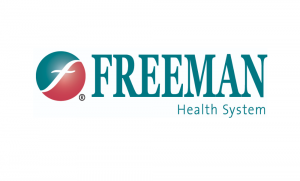




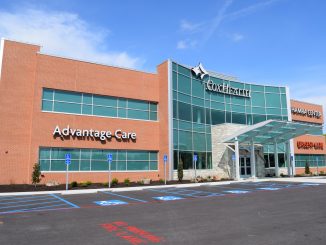
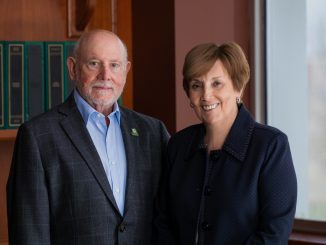
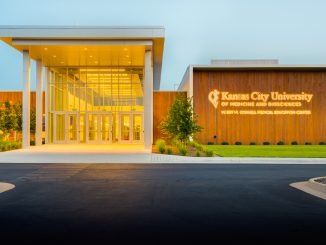
Be the first to comment